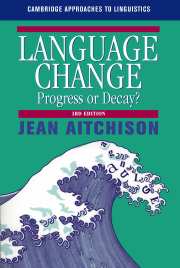Book contents
- Frontmatter
- Contents
- Preface
- Part 1 Preliminaries
- Part 2 Transition
- Part 3 Causation
- 10 The reason why
- 11 Doing what comes naturally
- 12 Repairing the patterns
- 13 The Mad Hatter's tea-party
- Part 4 Beginnings and endings
- Symbols and technical terms
- Notes and suggestions for further reading
- References
- Acknowledgments
- Index
13 - The Mad Hatter's tea-party
Chain reaction changes
from Part 3 - Causation
- Frontmatter
- Contents
- Preface
- Part 1 Preliminaries
- Part 2 Transition
- Part 3 Causation
- 10 The reason why
- 11 Doing what comes naturally
- 12 Repairing the patterns
- 13 The Mad Hatter's tea-party
- Part 4 Beginnings and endings
- Symbols and technical terms
- Notes and suggestions for further reading
- References
- Acknowledgments
- Index
Summary
‘I want a clean cup,’ interrupted the Hatter: ‘Let's all move one place on.’
He moved on as he spoke, and the Dormouse followed him; the March Hare moved into the Dormouse's place, and Alice rather unwillingly took the place of the March Hare. The Hatter was the only one who got any advantage from the change: and Alice was a good deal worse off, as the March Hare had just upset the milk-jug into his plate.
Lewis Carroll, Alice in WonderlandSometimes changes affect languages in a relatively minor way. Natural tendencies, exaggerated by social factors, cause disruptions, then the language restores the equilibrium again. The situation is reminiscent of day-to-day house cleaning or simple weeding in a garden, when minor problems are quickly eradicated.
At other times, however, the problem is not so easily remedied. An apparent therapeutic change can trigger off a set of wholesale shifts in which the various linguistic elements appear to play a game of musical chairs, shifting into each other's places like the participants at the Mad Hatter's tea-party. Sound shifts are better studied than syntactic shifts. In this chapter, therefore, we shall begin by looking at sound shifts. Afterwards, we shall discuss a possible syntactic shift.
Shifting sounds
For the sake of illustration, this section outlines two well-known examples of chain shifts involving sounds, one of consonants, the other of vowels.
- Type
- Chapter
- Information
- Language ChangeProgress or Decay?, pp. 183 - 198Publisher: Cambridge University PressPrint publication year: 2000



